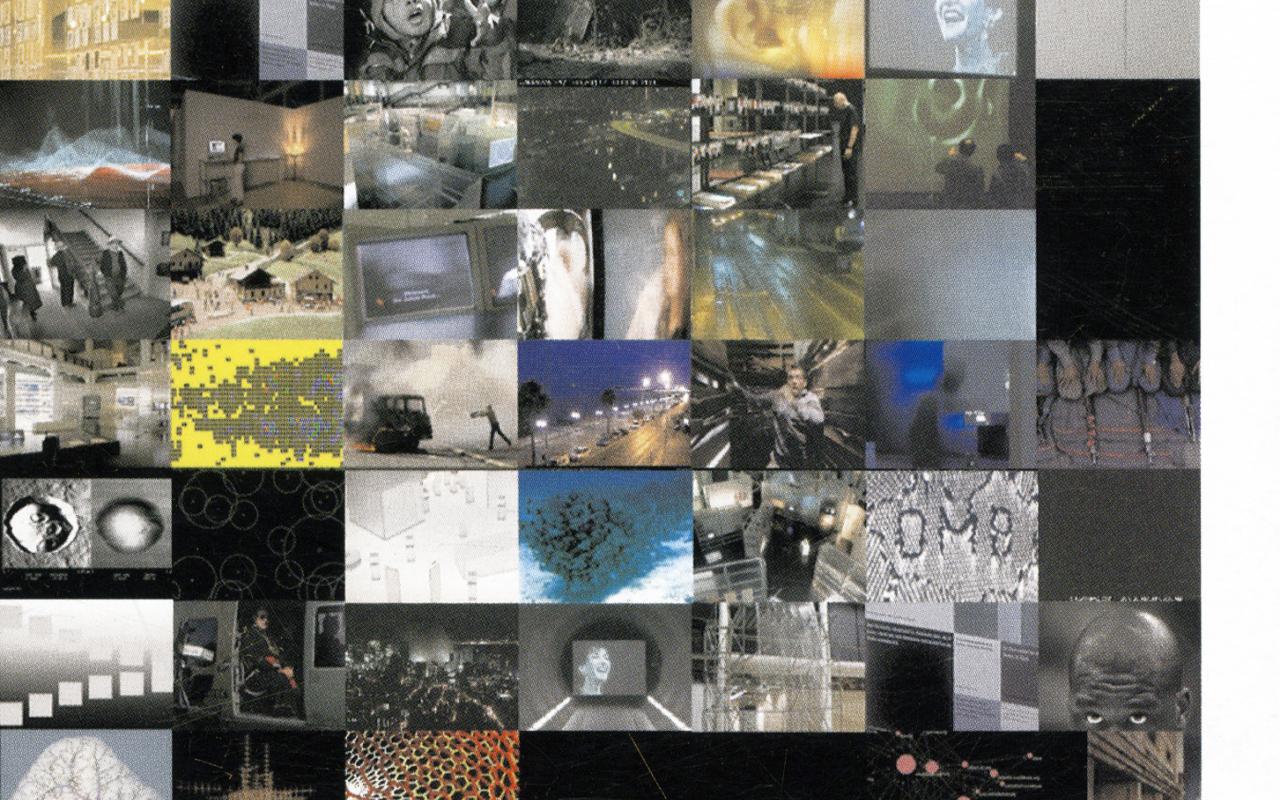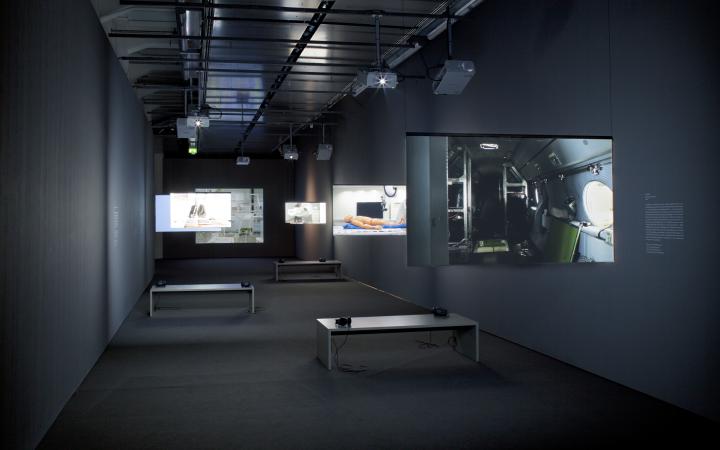Armin Linke: Transient
- Duration
- 27:25
- Category
- Lecture/Talk
- Date created
- 21.01.2006
- Description
Armin Linke, Photographer and Filmmaker, Milan:
On travels throughout the world, Armin Linke has used both film and photography to create a documentation of the effects of globalization, of the transformation of cities into mega-metropolises and their social and political consequences on human living conditions. His photographs and videos investigate these contemporary landscapes and our changed perception of space and time. the video Baghdad (2002) presents a fragmented view on the cityscape of Baghdad. Recorded in the elevator of a hotel, the view is partially looking on the Hotel Palestine which later formed the heart of the media apparatus during the war in Iraq. The series of going up and down the skyscraper creates a sequence of vertical images bound together by the continuous flux of the sound. Like the photographic prints, the film raises questions about the existence of any clearcut line between fiction and non-fiction. In the video Gaza, archive footage of daily life never used by media because of the absence of topical actions is bought from a local palestine news agency and edited into a short movie. It is the idea of the archive that always forms the conceptual framework for Linke's photographic and film work. Playing on many different photographic fields such as fashion and performance, architecture, portrait and reportage, and different themes like displacement, loss of scale, out of place, interface, envelopes, models of representation, control, economy, science, domestication of violence , etc. he continuously works on a potentially infinite archive of our contemporary imagery. Questions about how an archive can be represented and how it can be made accessible to the public has lead Linke to place his pictures on the net and to create his Book-on-Demand-project, first introduced at Utopia Station at the Venice Biennial. The viewer can flip through this interactive archive composing his or her individual Armin Linke book. The different methods of cataloging, according to thematic, chronological or topographical order, reflect the complexity of the system based on the principle of multitude.
Key topics
Audio
-
Jim Gehrz: Finding my personal vision
Lecture/Talk - 20.01.2006 - 49:58 -
Volker Böhnigk: Abbild und Typus
Lecture/Talk - 32:53 -
Florian Rötzer: Die Schönheit eines brennenden Autos
Lecture/Talk - 21.01.2006 - 36:35 -
Wilhelm Krull: Bildpolitik
Lecture/Talk - 7:38 -
Klaus Neumann-Braun: Vorstellungsbilder und Bebilderungspraxis im Kontext von Jugend-Diskursen und jugendlichem Alltag
Lecture/Talk - 21.01.2006 - 30:52 -
Cornelius Borck: Das Maschinenbild als Auge des Geistes
Lecture/Talk - 22.01.2006 - 26:34 -
Michael Diers: Der Bildgebrauch in den Massenmedien
Lecture/Talk - 21.01.2006 - 13:14 -
Das Bild in der Gesellschaft (Einleitung: Peter Weibel, Wilhelm Krull)
Lecture/Talk - 20.01.2006 - 14:02 -
Peter Weibel: Kunst und/als Wissenschaft
Lecture/Talk - 22.01.2006 - 29:47


